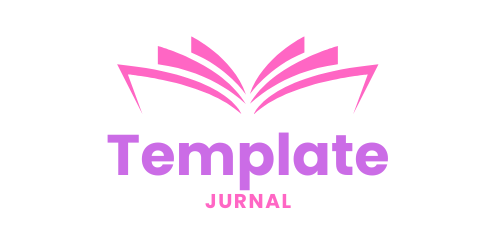PRODUKSI, KONSUMSI DAN DISTRIBUSI DALAM ISLAM
DOI:
https://doi.org/10.24256/joins.v2i1.1491Abstract
Abstract: The mechanism of production in Islam is that all activities whether production, consumption and distribution must be in accordance with the basic principles of monotheism, the principle of justice, the principle of freedom and the principle of accountability. Humans in production, consumption and distribution must be in accordance with Islamic ethics which makes prosperity and peace in society. Ethics in production are Allah's reminder of natural wealth, producing in halal circles, the ethics of managing natural resources, must be based on Islamic knowledge and sharia as the Khalifah in advance. Consumption ethics according to Islam, among others: Monotheism (Unity), fair (Equilibrium / Justice), Free Will, trust (Responsibility), hahal and simple. In the process of distributing goods, Islam prohibits Ikhtikar, seeks reasonable profits, distributes wealth widely and upholds social equality.
Keywords: Production, Consumption, Distribution, Islam
Abstrak: Mekanisme produksi dalam Islam adalah semua kegiatan baik produksi, konsumsi dan distribusi harus sesuai dengan prinsip-prinsip dasar yaitu prinsip tauhid, prinsip keadilan, prinsip kebebasan dan prinsip pertanggungjawaban. Manusia dalam berproduksi, konsumsi dan distribusi harus sesuai dengan etika Islam yang menjadikan kemakmuran dan ketentraman dalam bermasyarakat. Etika dalam berproduksi adalah; peringatan Allah akan kekayaan alam, berproduksi dalam lingkaran yang halal, etika mengelola sumber daya alam, harus dilandasi dengan ilmu dan syari’ah Islam sebagai Khalifah di muka. Etika komsumsi menurut Islam, antara lain: Tauhid (Unity/ Kesatuan), adil (Equilibrium/ Keadilan), Free Will (Kehendak Bebas), amanah (Responsibility/ Pertanggungjawaban), hahal dan sederhana. Dalam proses pendistribusian barang, Islam melarang Ikhtikar, mencari keuntungan yang wajar, mendistribusikan kekayaan secara meluas dan menjunjung kesamaan sosial.
Kata Kunci: Produksi, Konsumsi, Distribusi, Islam
DAFTAR PUSTAKA
Â
Anto, Hendrie, Pengantar Ekonomika Mikro Islami, Yogyakarta : Jalasutra, 2003
Karim, Adiwarman , Ekonomi Mikro Islami, Jakarta : PT Raja Grafindo Persada, 2007
Kementerian Agama RI, Al-Quran dan Terjemahnya Jakarta: Direktorat Jenderal Bimbingan Masyarakat Islam Direktorat Urusan Agama Islam dan Pembinaan Syaria’h, 2012
Mawardi,  Ekonomi Islam, Pekanbaru: Alaf Riau: 2007
Metwally, Teori dan Model Ekonomi Islam, Jakarta : PT. Bangkit Daya Insana, 1995
 Mujahidin, Akhmad,  Ekonomi Islam 2, Pekanbaru, Mujtahadah Press: 2010
M. Shaluddin, Azas-Azas Ekonomi Islam, Jakarta: CV.Raja Grafindo Persada, 2007
 M.A. Mannan, Teori dan Praktik Ekonomi Islam, Yogyakarta: PT. Dana Bhakti Wakaf, 1995.
Said, H. Muhammad.  Pengantar Ekonomi Islam,  Pekanbaru: Suska Press, 2008
S. Harahap, Sofyan,  Etika Bisnis dalam Perspektif Islam Jakarta: Salemba Empat: 2011
Thompson, Arthur,  and John, Formby, Economics of the Firm : Theory and practice, New Jersey : Prentice Hall, 1993
Qardhawi, Yusuf, Dar al-Qiyam wa Al-Akhlak fi al-Iqtishadi al-Islam Kairo: Maktabah Wahbah, 1995
Â
http://sakir-88.blogspot.com/2011/11/makalah-investasi-islam-di-bidang-riil.html.
Downloads
Additional Files
Published
Issue
Section
Citation Check
License
Authors who wish to publish and disseminate their papers with the Journal Of Institution And Sharia Finance shall agree to the publishing rights set by Journal Of Institution And Sharia Finance Authors understand that they shall assign publication right to as part of the process upon acceptance for publication. Authors agreed that they will transfer certain copyrights to Journal Of Institution And Sharia Finance. Consecutively, authors still retain some rights to use and share their own published articles without written permission from Journal Of Institution And Sharia Finance.
Authors granted Journal Of Institution And Sharia Finance. these following rights; (1) the right to publish and provide the manuscripts in all forms and media for the purpose of publication and dissemination, (2) the authority to enforce the rights in the manuscript, for example in the case of plagiarism or in copyright infringement.
Journal Of Institution And Sharia Finance will follow COPE’s Code of Conduct and Best Practice Guidelines for Journal Editors to protect the research results and takes allegations of any infringements, plagiarisms, ethical issues, and frauds should those issues arise. The manuscript is attributed as authors' work, and are properly identified.




